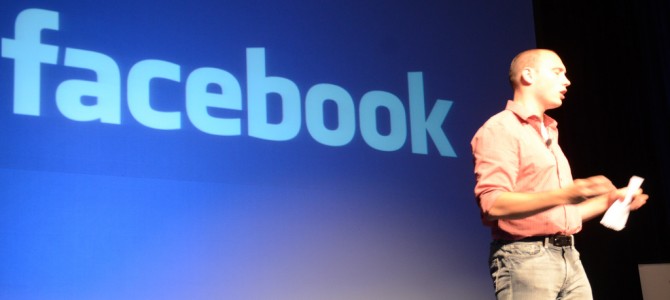
Two years ago, I broke up with Facebook. It was one of the best things I’ve ever done. Like any big break up, I had complex reasons, but the biggest was that I simply did not trust Facebook. The relationship started out with the euphoria of new love, but over the years turned to something resembling abuse.
Facebook eerily insists on invading your life. It insinuates itself into your phone, it peeps through your contacts, wants to know your location. It tracks you even when you’re not on Facebook. Then it sells you to the highest bidder. We all know this, but we keep going back.
I left because I no longer trusted Facebook with cute pictures of my kids, I didn’t want it to catalog my political views. It doesn’t need a record of my evolving faith, what I ate for dinner, or my insomniac midnight searches for a sailboat in the Caribbean. Only friends deserve this level of revelation, although perhaps no one in his right mind would want it, and Facebook was increasingly not my friend. It felt more like a creepy uncle or a used car salesman.
Now, with the news breaking that Facebook allowed social scientists to manipulate news feeds, possibly in violation of ethical guidelines, to see how it affected our moods, I’m feeling vindicated.
The one study that has been revealed is probably only the tip of the iceberg. Police, prosecutors, and attorneys can already access your Facebook data, the NSA does who knows what, and we still give them more. Of course researchers want in on that pile of information. It’s a gold mine. Facebook’s interests are in exploiting that gold mine—exploiting me, and not in protecting me.
It’s Not You, It’s Me
To be honest, the breakup wasn’t about just Facebook. It was also about me. I didn’t like who I was around Facebook. I started thinking in status updates, taking pictures with the aim of bragging on my wall, living for likes and responses. Facebook became a perpetual stage. When you’re on stage, you behave differently than when you aren’t. We are always on stage because we’re never really offline. Even if we escape for a few days, the virtual audience is there, always waiting, hushed, to hear everything about our absence. That kind of narcissism is hard to resist. It begins to feel natural.
I didn’t like the way it changed how I related to people. Friends’ funny stories? I’d heard them already at 1 AM as I scrolled, bleary-eyed, for entertainment. Three days later, that hilarious coincidence or humiliating misstep seemed stale in person. When really bad things or really good things happened, they were muted by Facebook: an engagement announcement reduced to relationship status change, a death mourned in short condolences posted between liking a puppy photo and laughing at a meme. I missed seeing the laughter in my friends’ eyes, squeezing a girlfriend in glee, and putting my arm around a colleague in a heartfelt, inadequate attempt to comfort.
It was hard, but I shut it down. First I downloaded all the photos and updates I’d made in more innocent, trusting days when Facebook was bright and new. Then I deleted my account. Since I have to manage social media for work, I must have a skeleton account. I made a profile, locked the privacy options down, and entered only professional data. I made my wall public, but I only post my articles there. I accept any friends, but I mute their feeds so that I don’t have a constant stream of chatter coming at me. I’d rather be off Facebook altogether, but this is a compromise that works for me. I have similar rules of engagement for Twitter and Instagram as well.
It’s been two years now and I’ve known sorrow and joy in those two years, emotions I’ve shared with physical friends while walking the dog or drinking coffee. Long talks on the phone have replaced short glimpses of lives. Even on vacation, I’ve taken photos for my own enjoyment and nothing more.
As with any relationship, Facebook will only be able to abuse us to the extent we allow it to do so. As a good relationship therapist will tell you, it’s all about setting boundaries. I don’t trust Facebook, so I don’t give it power over me, my information, or my moods.
We should ask ourselves one question: Do we get enough out of Facebook to make the abuse worthwhile?









